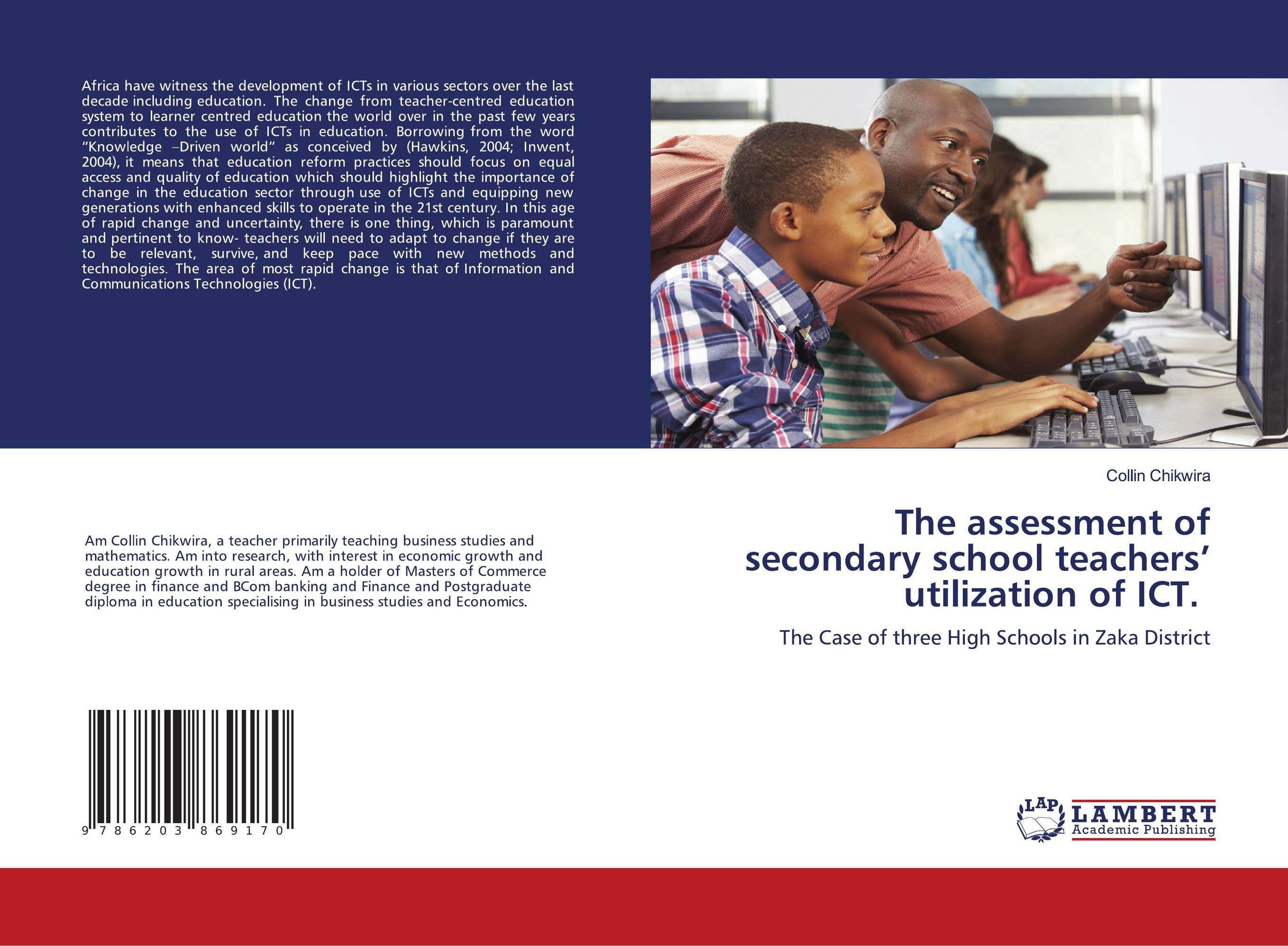| Поиск по каталогу |
|
(строгое соответствие)
|
- Профессиональная
- Научно-популярная
- Художественная
- Публицистика
- Детская
- Искусство
- Хобби, семья, дом
- Спорт
- Путеводители
- Блокноты, тетради, открытки
The assessment of secondary school teachers’ utilization of ICT.. The Case of three High Schools in Zaka District

В наличии
| Местонахождение: Алматы | Состояние экземпляра: новый |

Бумажная
версия
версия
Автор: Collin Chikwira
ISBN: 9786203869170
Год издания: 1905
Формат книги: 60×90/16 (145×215 мм)
Количество страниц: 52
Издательство: LAP LAMBERT Academic Publishing
Цена: 22924 тг
Положить в корзину
| Способы доставки в город Алматы * комплектация (срок до отгрузки) не более 2 рабочих дней |
| Самовывоз из города Алматы (пункты самовывоза партнёра CDEK) |
| Курьерская доставка CDEK из города Москва |
| Доставка Почтой России из города Москва |
Аннотация: Africa have witness the development of ICTs in various sectors over the last decade including education. The change from teacher-centred education system to learner centred education the world over in the past few years contributes to the use of ICTs in education. Borrowing from the word “Knowledge –Driven world” as conceived by (Hawkins, 2004; Inwent, 2004), it means that education reform practices should focus on equal access and quality of education which should highlight the importance of change in the education sector through use of ICTs and equipping new generations with enhanced skills to operate in the 21st century. In this age of rapid change and uncertainty, there is one thing, which is paramount and pertinent to know- teachers will need to adapt to change if they are to be relevant, survive, and keep pace with new methods and technologies. The area of most rapid change is that of Information and Communications Technologies (ICT).<p>Africa have witness the development of ICTs in various sectors over the last decade <span>including </span><span>education. The change from teacher-centred education system to learner centred education </span><span>the world over in the past few years contributes to the use of ICTs in education. Borrowing </span><span>from the word “Knowledge –Driven world” as conceived by (Hawkins, 2004; Inwent, 2004), </span><span>it means that education reform practices should focus on equal access and quality of </span><span>education which should highlight the importance of change in the education sector through </span><span>use of ICTs and equipping new generations with enhanced skills to operate in the 21st </span><span>century. </span><span>In this age of rapid change and uncertainty, there is one thing, which is paramount and </span><span>pertinent to know- teachers will need to adapt to change if they are to be relevant, survive, </span><span>and keep pace with new methods and technologies. The area of most rapid change is that of </span><span>Information and Communications Technologies (ICT).</span></p>
Ключевые слова: ICTs in education, Knowledge –Driven world, Communications Technologies (ICT), education, knowledge



